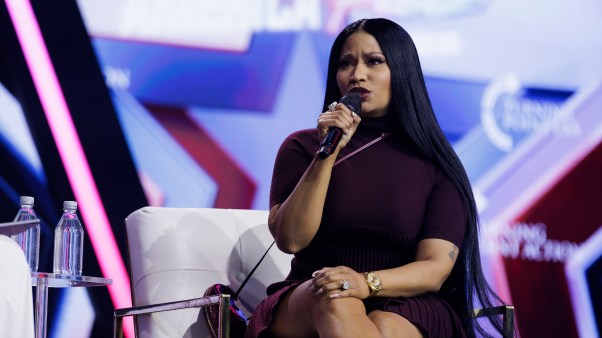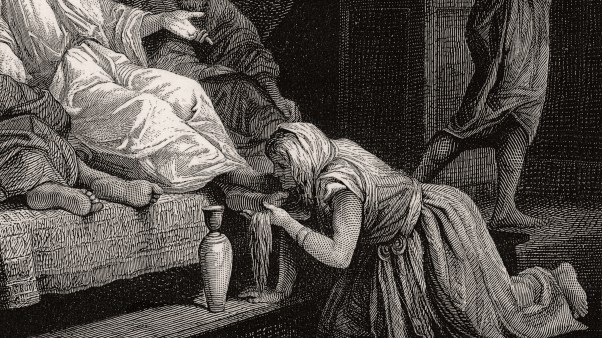“American society has a knowledge crisis,” Bonnie Kristian tells us in the first sentence of her timely new book, Untrustworthy, “and the American church is no exception.” Our chaotic information environment is systematically eroding Americans’ trust in public institutions and in each other. It makes us simultaneously more cynical and more gullible—no simple feat—and so isolated that “we begin to lose touch with reality.”
Untrustworthy: The Knowledge Crisis Breaking Our Brains, Polluting Our Politics, and Corrupting Christian Community
Brazos Press
240 pages
$8.40
If the implications for American democracy are grim, Kristian argues, the consequences for American Christianity are darker still. The crisis that plagues us “risks grave damage to our church communities, our public witness, and our individual faith,” she writes. Oh, that we might have ears to hear.
Kristian’s book, subtitled “The Knowledge Crisis Breaking Our Brains, Polluting Our Politics, and Corrupting Christian Community,” begins with a layman’s introduction to epistemology: the philosophical study of the nature of knowledge that asks if we can know things and how we can know them. Few of us waste much time on such questions because they seem so esoteric and impractical. Whatever academic philosophers might theorize, the rest of us intuitively recognize that we can’t function in our daily lives without making two assumptions: first, that it’s possible to gain knowledge about reality that is objectively true for all; and second, that it’s possible to communicate that truth intelligibly to others.
But this is precisely Kristian’s point. When it comes to the public square, these assumptions are under attack, and our public life reels from the assault. A half century ago, most Americans acquired news about the world from two major wire services and three television networks, all of which said pretty much the same thing. Since that time, the sheer quantity of information has exploded. Even more importantly, so have the number and range of information sources. The hard truth is that few are equipped to think critically about this cacophony, with the result that we no longer agree about even the most basic facts. As Kristian puts it, “Our epistemology is a mess—and we don’t even know we have an epistemology.”
Epistemic fog
In the first two thirds of Untrustworthy, Kristian focuses on the mess we’re in and explores how our ignorance of epistemology renders us vulnerable to manipulation, dishonesty, and self-deception. She stresses that our knowledge crisis “is not a single-party phenomenon,” although the Right and the Left generally contribute to the problem in different ways.
From the Right, former President Donald Trump made “fake news” a household phrase, Kellyanne Conway gave us “alternative facts,” and Rudy Giuliani blithely declared that “truth isn’t truth.” Collectively, says Kristian, such phrases “cast an epistemic fog” across the information landscape, encouraging us not only to dismiss what is specious but to discredit even accurate claims reflecting poorly on Us or positively on Them.
Voices from the Left, on the other hand, have insisted that our ability to know reality is inseparable from our racial, ethnic, and sexual identities. While our experiences and social situations undoubtedly influence how we see the world, when taken to an extreme, this view can bring meaningful conversation to a halt. Effectively, it says, You can’t see what I see, so you can’t know what I know or challenge what I believe. Like the Right’s emphasis on “fake news,” the Left’s stress on identity denies that constructive communication across social and political boundaries is even possible.
Most of us have encountered the crisis of knowledge primarily through traditional and social media, and Kristian devotes considerable attention to both. As a longtime journalist (and a frequent CT contributor), Kristian defends traditional media without being defensive. She concedes and laments the liberal bias of most mainstream print and television news outlets, but she stresses that it shows up primarily through emphasis—in other words, through editorial decisions about which stories to highlight and which to soft-pedal or ignore. Responsible news outlets—despite their implicit (and probably inevitable) bias—don’t intentionally disseminate falsehoods.
The same can’t be said for social media, where truly fake news abounds. But more insidious than the outright fabrication that flourishes online is what Nicholas Kristof once called “the Daily Me”—the succession of news items and opinion pieces exquisitely tailored by algorithms to reinforce what we already believe while making us furious at those who think differently. Social media “runs on human emotion,” Kristian reminds us, and its most powerful fuel is “political outrage.” If we live in “the Age of Outrage,” as Ed Stetzer has christened our polarized moment, it owes in large measure to our self-imposed exile from inconvenient facts and challenging perspectives. Withdrawing into echo chambers, we become progressively more ignorant—and more dogmatic in our ignorance.
Kristian examines some of the most egregious examples of this poisonous combination, like the effects of “cancel culture” and the alarming popularity of conspiracy theories. Neither phenomenon is new. Nearly two centuries ago, Alexis de Tocqueville found that the moral authority of popular opinion was often “tyrannical,” erecting such “a formidable barrier around thought” that freedom of opinion “does not exist in America.”
Fascination with conspiracy theories is also a staple of the American past. Federalist statesmen in the late 18th century feared the machinations of a secret society of anti-Christian “Bavarian Illuminati.” Before the Civil War, Republicans warned voters about a “Slave Power conspiracy.” The Populist Party of the 1890s detected a plot for world domination coordinated by Jewish bankers.
In sum, we’ve always canceled social transgressors. We’ve always been drawn to simple answers to complex questions. We’ve always been susceptible to emotional manipulation. What is new is the speed with which vast volumes of information—true and false, balanced and distorted—can be generated with such astonishing ease. This trend only magnifies tendencies to which we are already prone. Gradually remade by the devices that mesmerize us, we become less and less willing to listen, less and less tolerant of dissent, less and less able to engage constructively and charitably with others in pursuit of a common good.
In recent years, writers across the spectrum have noted the detrimental effect of social media on our politics and connected political dysfunction to a larger epistemic crisis. Christian observers like Stetzer and Daniel Darling are among those examining how social media is corrupting Christian witness. What distinguishes Kristian is the sheer comprehensiveness of her examination and, above all, her demonstration that the knowledge crisis may harm the church even more than democracy.
At the heart of Untrustworthy is a clarion call for Christians to awaken to how this crisis is wreaking havoc on our churches and tarnishing our testimony. Kristian grieves over the division of churches; the estrangement of families; and, most poignantly, her pain while watching helplessly as a Christian colleague succumbed to the power of “fearmongering falsehoods.” When we can’t agree on basic facts, conversation becomes futile, intimate connection impossible, and real Christian community unattainable. “If we can’t talk to one another,” Kristian asks plaintively, “how do we worship together?”
Admonishing without scolding, Kristian exhorts us to think Christianly about our information environment. Our tendency to shut ourselves off from those who think differently should bring to mind Paul’s warning about people demanding teachers “to say what their itching ears want to hear” (2 Tim. 4:3). The vitriol we encounter on our favorite cable news outlets and Facebook pages should remind us of James’s lament that the same mouths that praise God too often curse those made in God’s likeness (3:9). When we’re tempted to join in an online shaming, we should ask ourselves how we are putting away “rage and anger, brawling and slander, along with every form of malice” (Eph. 4:31).
Although the technology that undergirds our current information environment is not intrinsically evil, Kristian reminds us of its capacity for unspeakable harm. Using it responsibly requires relentless discernment. As she says of her smartphone, “The thing in my right hand isn’t always a lie, but it is amply capable of transmitting lies, and it is by design manipulative of me, of knowledge, and of reality.” Ignorance of this potential—or worse, indifference to it—is a sure path to cultural conformity and the corruption of Christian witness.
Epistemic virtues
Kristian concludes with a host of practical suggestions designed to help readers evaluate their habits and reform them where necessary. Echoing Christian philosopher Jay Wood’s insight that “God cares about how you think, not just what you think,” she reviews key “epistemic virtues” such as studiousness, intellectual honesty, and a love of truth, offering a “building plan” for nurturing the sorts of habits that will sustain those virtues over time.
The questions she poses are guaranteed to make us uncomfortable. They include: “Are you addicted to your phone? Do you enjoy cable news? Do you like dunking people on Twitter? Can you still hear yourself think? Do you ever have time for introspection? Are you making anyone’s life better” with your online activities?
On the first page of Untrustworthy, Kristian warns that the current knowledge crisis may well be “the most pressing and unprecedented challenge of discipleship in the American church.” Can we rise to the challenge? I confess I have doubts, but this I am sure of: Unplugging our devices and reading this fine work, slowly and prayerfully, would be a great place to start.
Robert Tracy McKenzie is Arthur F. Holmes Chair of Faith and Learning and a professor of history at Wheaton College. He is the author of We the Fallen People: The Founders and the Future of American Democracy.












